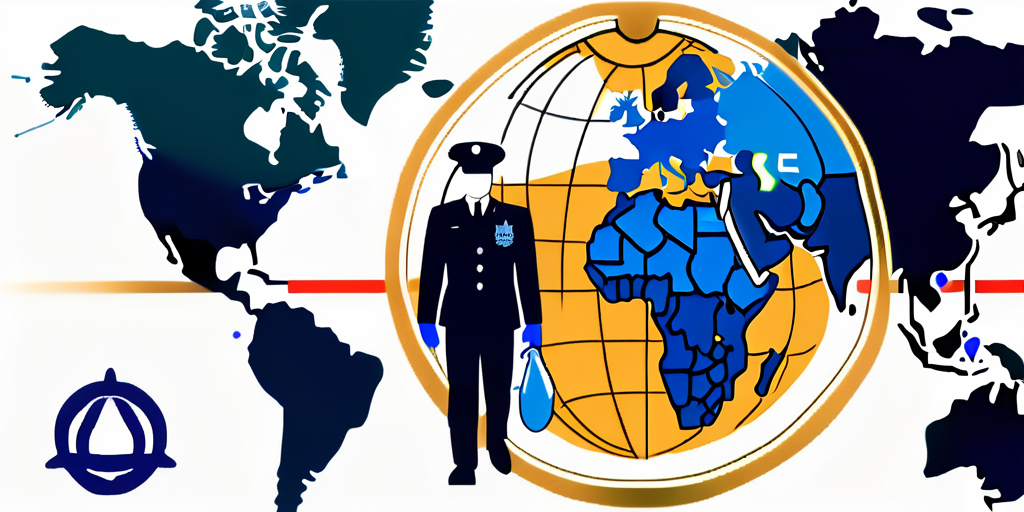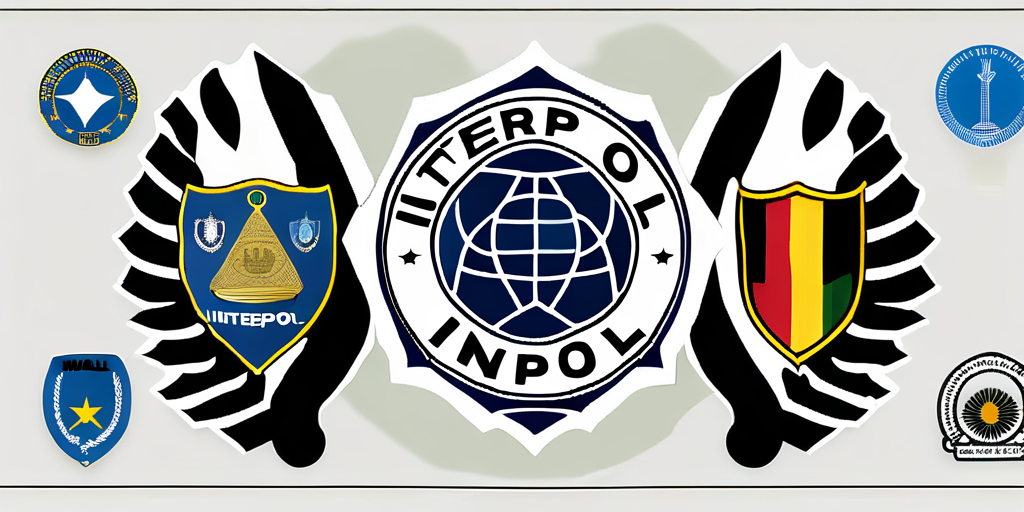Interpol, the International Criminal Police Organization, plays a crucial role in promoting global law enforcement cooperation. For countries like Mali, Interpol’s collaboration is instrumental in addressing various security challenges. This article delves into Mali’s Interpol collaborative efforts, exploring its role, historical development, current projects, challenges, and future prospects.
Understanding Interpol’s Role in Mali
To comprehend the significance of Mali’s collaboration with Interpol, it is essential to understand Interpol’s structure within the country. Interpol in Mali operates through a National Central Bureau (NCB), which acts as the main point of contact for the organization’s activities. The NCB is tasked with facilitating information exchange, assistance requests, and operational support.
Moreover, Interpol’s presence in Mali is reinforced by a team of specialized officers who work closely with local authorities. This integration ensures effective coordination and enhances the country’s capacity to combat transnational crime and terrorism.
Interpol’s involvement in Mali goes beyond just operational support. The organization also provides training programs and capacity-building initiatives to enhance the skills of Malian law enforcement officers. This collaborative effort aims to strengthen Mali’s ability to address emerging security challenges effectively.
Additionally, Interpol’s partnership with Mali extends to regional and international cooperation frameworks. Through these partnerships, Mali can leverage Interpol’s global network to access resources, expertise, and intelligence crucial for combating cross-border crimes.
The Structure of Interpol in Mali
Mali’s National Central Bureau consists of various units, each specializing in a specific area of law enforcement. These units include cybercrime, trafficking, fugitive tracking, and counter-terrorism. Through this specialized structure, Interpol in Mali covers a broad range of criminal activities.
Key Responsibilities of Interpol in Mali
Interpol in Mali assumes several key responsibilities, which contribute to the country’s overall security and stability. These responsibilities encompass initiatives related to counter-terrorism, transnational crime, fugitive tracking, and supporting investigations through information exchange and analytical support.
The Evolution of Mali-Interpol Collaboration
Over the years, Mali’s collaboration with Interpol has evolved, adapting to the changing security landscape and emerging threats. This partnership has gone through various stages, characterized by significant milestones and achievements.

The collaboration between Mali and Interpol dates back to the establishment of the country’s National Central Bureau in xxxx. Since then, both entities have been working together to strengthen law enforcement capabilities and address security challenges.
Throughout its history, Mali has actively engaged with Interpol, participating in training programs, exchanging operational information, and enhancing cooperation in key areas such as counter-terrorism, human trafficking, and drug smuggling.
This collaboration has not only strengthened Mali’s law enforcement agencies but has also contributed to regional and global security efforts. By leveraging Interpol’s vast network of member countries and resources, Mali has been able to access crucial intelligence and support in combating transnational crime.
Milestones in the Collaboration
Several milestones mark the progress of Mali-Interpol collaboration, reflecting the commitment of both parties towards shared objectives. These milestones include successful joint operations, the implementation of specialized training programs, and the expansion of Interpol’s presence in Mali.
One notable achievement was the joint operation conducted in xxxx, resulting in the dismantling of a major transnational criminal network involved in drug trafficking. This operation demonstrated the tangible impact of Mali’s collaboration with Interpol in combating global organized crime.
Furthermore, the partnership has facilitated the establishment of specialized task forces to address specific security threats in Mali, such as cybercrime and illicit arms trafficking. These task forces bring together experts from both Interpol and Mali’s law enforcement agencies to develop targeted strategies and operations.
Current Collaborative Projects Between Mali and Interpol
Mali’s ongoing collaborative projects with Interpol showcase the country’s commitment to maintaining regional and global security. These projects encompass various dimensions, with a particular focus on counter-terrorism initiatives and the fight against transnational crime.

Counter-Terrorism Initiatives
Mali’s Interpol collaboration in counter-terrorism efforts is instrumental in mitigating the threats posed by extremist groups. Through intelligence sharing, capacity building, and joint operations, Interpol supports Mali in preventing terrorist activities, tracking fugitives, and dismantling terrorist networks.
Furthermore, Interpol’s databases, such as the Stolen and Lost Travel Documents database, aid in identifying potential security risks and detecting individuals linked to terrorist activities.
Combating Transnational Crime
Mali faces various transnational crime challenges, including drug trafficking, human smuggling, and organized criminal networks. Through its collaboration with Interpol, Mali can enhance its capabilities to combat these illicit activities.
Interpol provides technical assistance, training programs, and operational support to help Mali effectively investigate and dismantle criminal networks. Additionally, Interpol’s databases, like the International Child Sexual Exploitation database, contribute to identifying and bringing offenders to justice.
Challenges in the Mali-Interpol Collaboration
Mali’s Interpol collaboration does not come without challenges, as the country grapples with political instability and resource constraints.
Political Instability and its Impact
The unstable political climate in Mali affects the sustainability and effectiveness of the collaboration with Interpol. Political unrest can hinder cooperation and disrupt information sharing, which is essential for combating transnational crime and terrorism. Therefore, achieving long-term stability is crucial to maintain and strengthen this partnership.
Resource Constraints and Solutions
Mali faces resource constraints, including limited funding and inadequate technology. These constraints impact the capacity of Mali’s law enforcement agencies to fully leverage Interpol’s resources and capabilities.
To address these challenges, Mali, with the support of Interpol, seeks partnerships and financial assistance from international organizations and donor countries. These collaborations aim to enhance Mali’s technological infrastructure, training programs, and overall law enforcement capacity.
The Future of Mali’s Interpol Collaboration
The future of Mali’s Interpol collaboration is marked by upcoming projects and long-term goals that reflect the country’s commitment to security and stability.

Upcoming Projects and Initiatives
Mali is actively engaged in upcoming projects and initiatives in collaboration with Interpol. These projects include specialized training programs, joint operations, and the development of intelligence networks.
Furthermore, Mali seeks to strengthen cooperation with neighboring countries and regional organizations to effectively address transnational security threats.
Long-Term Goals and Expectations
Mali’s long-term goals in collaboration with Interpol revolve around achieving self-sufficiency in combating crime and terrorism. The country aims to develop a robust law enforcement infrastructure, enhance information sharing mechanisms, and foster regional cooperation.
By working closely with Interpol, Mali seeks to create a safer and more secure environment for its citizens and contribute to the global fight against crime and terrorism.
In conclusion, Mali’s Interpol collaborative efforts represent a crucial aspect of the country’s security strategy. Through its partnership with Interpol, Mali addresses security challenges, combats transnational crime, and enhances its counter-terrorism capabilities. Despite challenges, such as political instability and resource constraints, Mali remains committed to reaping the benefits of this collaboration. With upcoming projects and long-term goals, Mali’s Interpol collaboration lays the foundation for a safer and more secure future.
